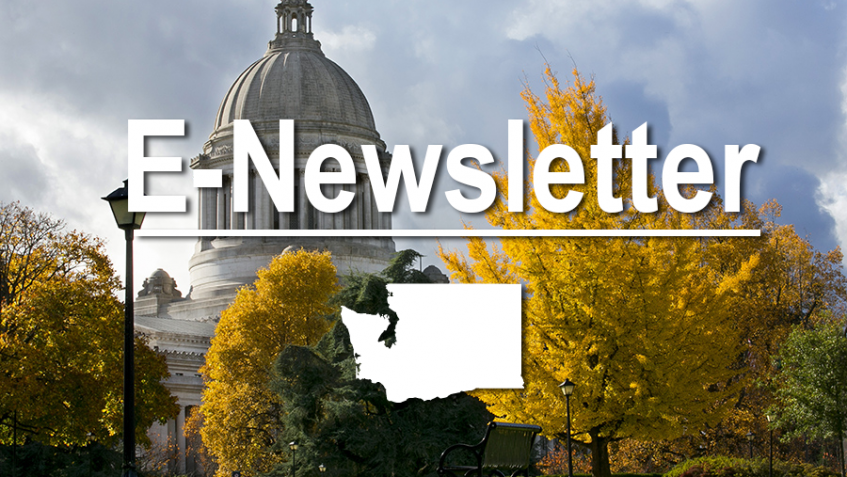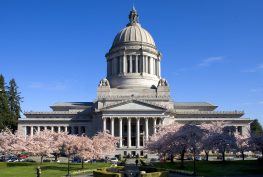Dear Friends and Neighbors in the 11th District,
I hope that you are all continuing to do everything you can to keep yourselves and your families safe. Since the coronavirus situation is constantly evolving, and the available resources are constantly expanding, I wanted to provide you with another update.
I also wanted to remind you that it’s time to participate in the 2020 U.S. Census. This newsletter provides some helpful information about how to participate, and why your participation is so necessary for our community.
COVID-19 RELIEF PROGRAMS
At the federal level
- Stimulus Checks: Most adults will get $1,200, although some would get less. For every qualifying child age 16 or under, the payment will be an additional $500. This is a one time payment, but congress may pass future bills allowing additional payments. The IRS says checks will be sent out in the next three weeks to those who file a tax return.
- Paid Sick and Family and Medical Leave: The U.S. Department of Labor issued a temporary rule related to implementing new paid sick leave and expanded family and medical leave under the Families First Coronavirus Response Act. Please find more information below this email.
- Small businesses: Your business may be eligible for the Paycheck Protection Program for a loan up to $10 million, an Economic Injury Disaster Loan/Grant advance of up to $10,000, and/or SBA Debt Relief.
- Student Loans: Through September 30, 2020, federal student loan payments are automatically suspended with no late fees or penalties. This only applies to federal student loans, not private student loans.
- Car Loans: Many lenders are offering special forbearance programs to help borrowers through the next several months. Many provisions allow for deferred or delayed payments caused by Covid-19.
- Taxes: Both the federal Internal Revenue Service and the Washington Department of Revenue are providing extensions on taxes and waivers of penalties.
Recently, Congress passed a bipartisan economic relief plan to help people nationwide deal with the financial impacts of the coronavirus outbreak. This helpful FAQ New York Times article provides a great explanation.
At the state level
- Evictions: Gov. Jay Inslee announced a moratorium on evictions on March 18, that prohibits landlords from serving an eviction notice for default on payment of rent (unless there’s an affidavit) and prohibits local law enforcement from acting on eviction orders.
- Mortgages: Gov. Jay Inslee and Charlie Clark, director of the Washington State Department of Financial Institutions (DFI) announced the state is taking steps to assist distressed Washington homeowners who are unable to make their mortgage payments due to COVID-19 (coronavirus) restrictions.
- Unemployment Benefits: If you were laid off or had your hours decreased as a result of COVID-19, you are likely eligible for unemployment benefits. Please see the WA Employment Security Department site for details on your eligibility and/or go here to apply.
The best place to find accurate and up-to-date information about COVID-19 in Washington state is www.coronavirus.wa.gov. The King County Public Health website is also a great resource and can be found at www.kingcounty.gov/covid.
At the city level
- City of Seattle: Here’s a comprehensive list of services and benefits offered during the COVID-19 pandemic: City of Seattle COVID-19: Resources for Community webpage. It includes resources related to health insurance, to food, to information for workers, businesses, and nonprofits, to resources for artists. Translation features will be available in the next few days.
- City of Tukwila: operational changes
- City of Renton: Mayor Pavone’s publishes daily COVID-19 updates, which appears to have a comprehensive list of services, resources, and operational changes in the city.
CENSUS
Data from the census guides more than $675 billion in federal funding to communities each year. For every 1,000 people who don’t complete the census, our district could lose $2 million in funding. It has never been easier to participate in the 2020 census: by mail (through a paper questionnaire mailed to your household), by phone (844-330-2020) or online (at my2020census.gov).
When you complete the census, you’ll be asked to provide the number of people living in your household as well as the demographic information (age, race and sex) for each person. There is no citizenship question on the 2020 census, and responses are confidential and only used for statistical purposes.
- The Count of College/University Students: Although campuses have shut down or gone online, college students should count their household (roommates and all) even if the college student happens to have relocated recently in response to COVID-19. The Bureau has produced a quick video to explain the process and here is a useful written explainer from the Population Reference Bureau.
- African American Census Guide: information on how to complete the census and some rich news stories on why an accurate count matters to the African American community in our state.
- Census Bureau’s Print Guide in Marshallese (online here): Marshallese is a language important in our state, but it was not large enough across the United States to make the Bureau’s list for foreign language help. If you have a Marshallese community in your area, here’s a great resource for you.

My thoughts are with you all as we continue to fight the coronavirus outbreak in our communities. Please keep yourselves and your families safe.
Sincerely,
Bob

From the U.S. Department of Labor:
Paid Sick and Family and Medical Leave for COVID-19
The U.S. Department of Labor issued a temporary rule related to implementing new paid sick leave and expanded family and medical leave under the Families First Coronavirus Response Act.
The Department announced new guidance on unemployment insurance for states in response to COVID-19. The new guidance helps states implement new legislation that makes workers who are normally not eligible for unemployment benefits—such as self-employed and gig workers—eligible for benefits and that provides expanded unemployment insurance benefits for all workers.
Respiratory Protection Guidance
OSHA has issued interim enforcement guidance to help combat supply shortages of disposable N95 filtering facepiece respirators (N95 FFRs).



